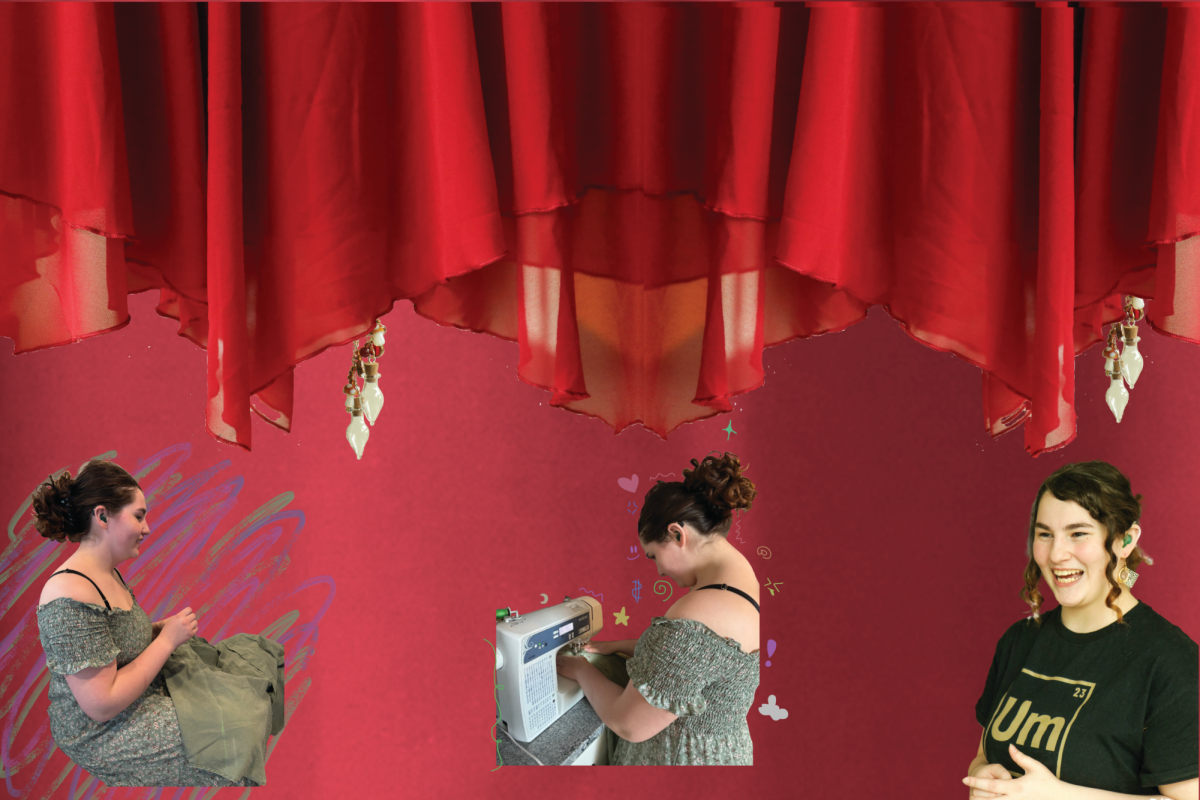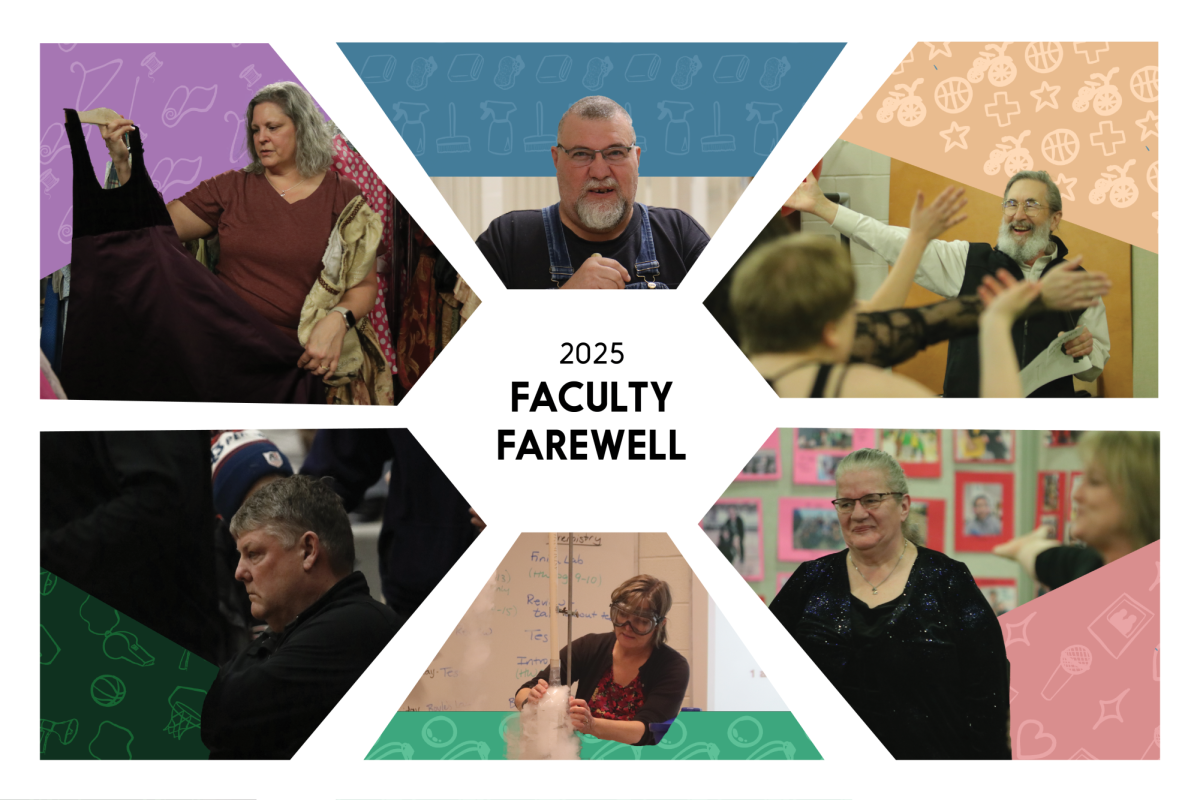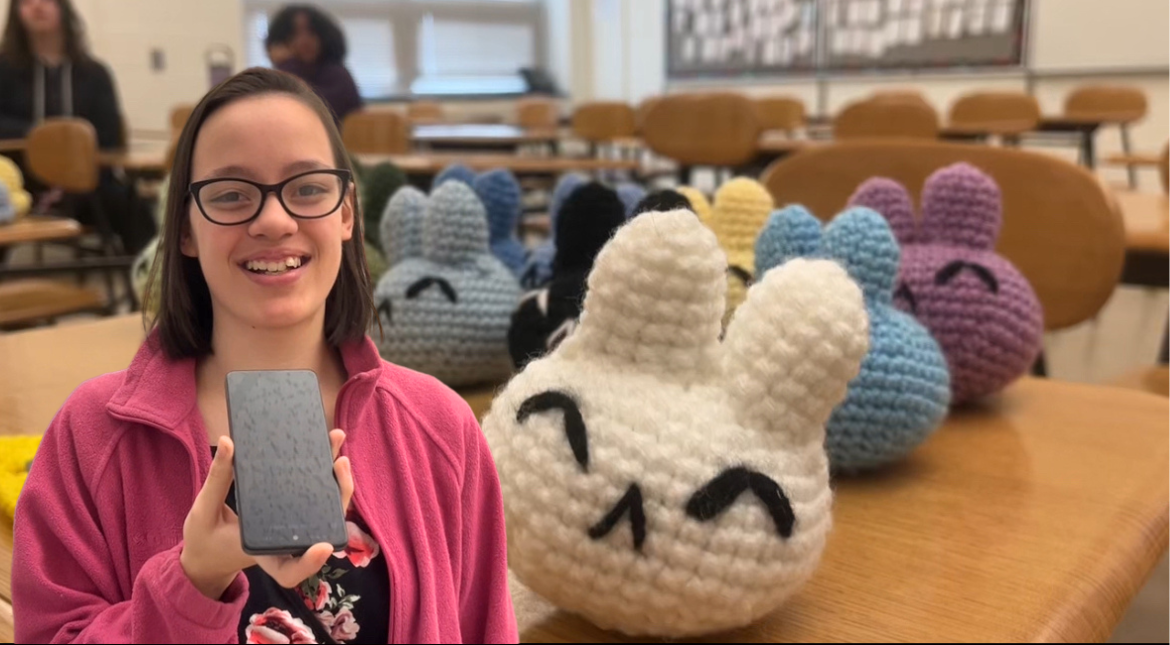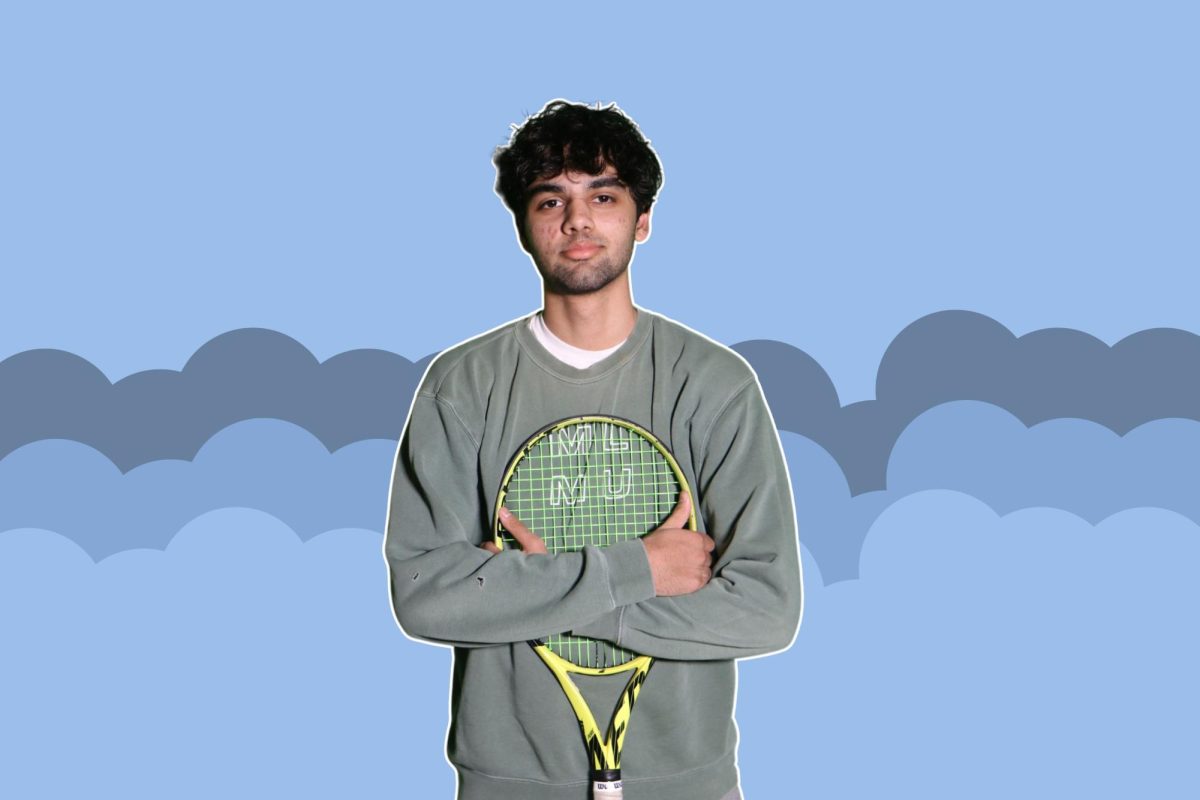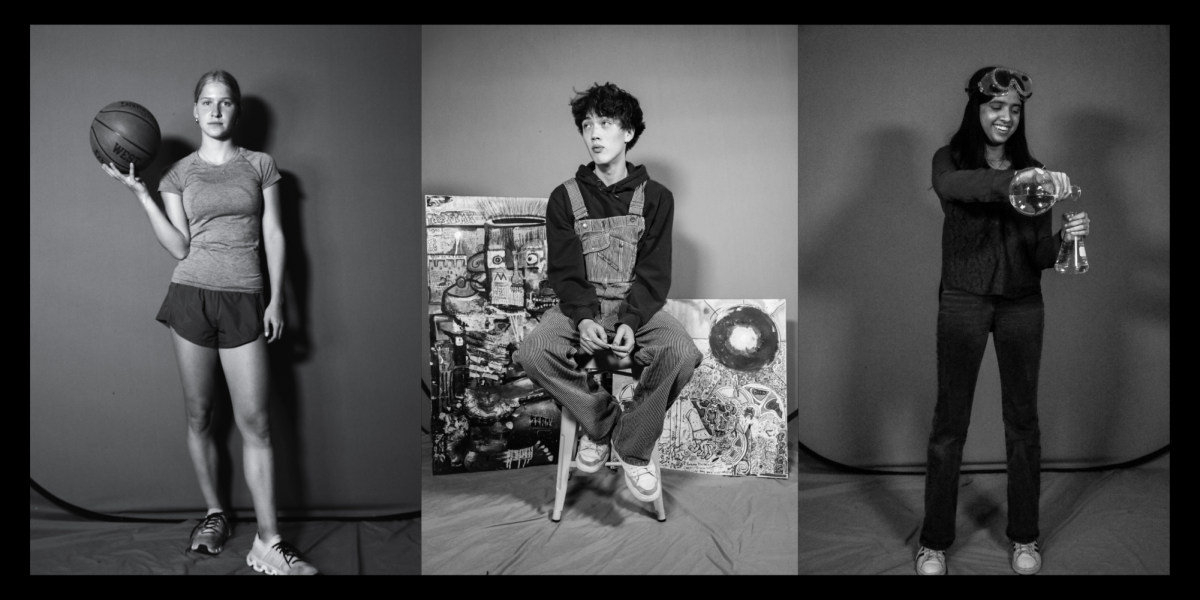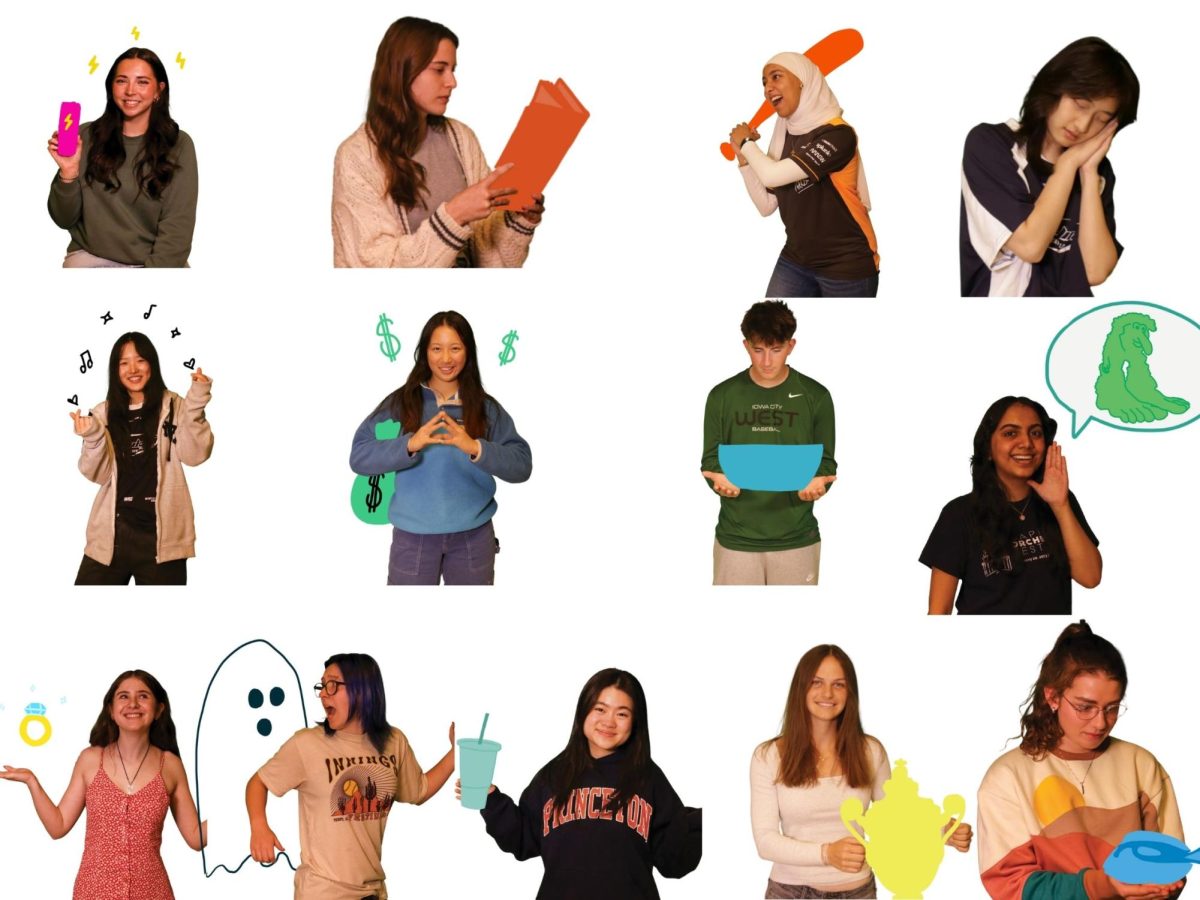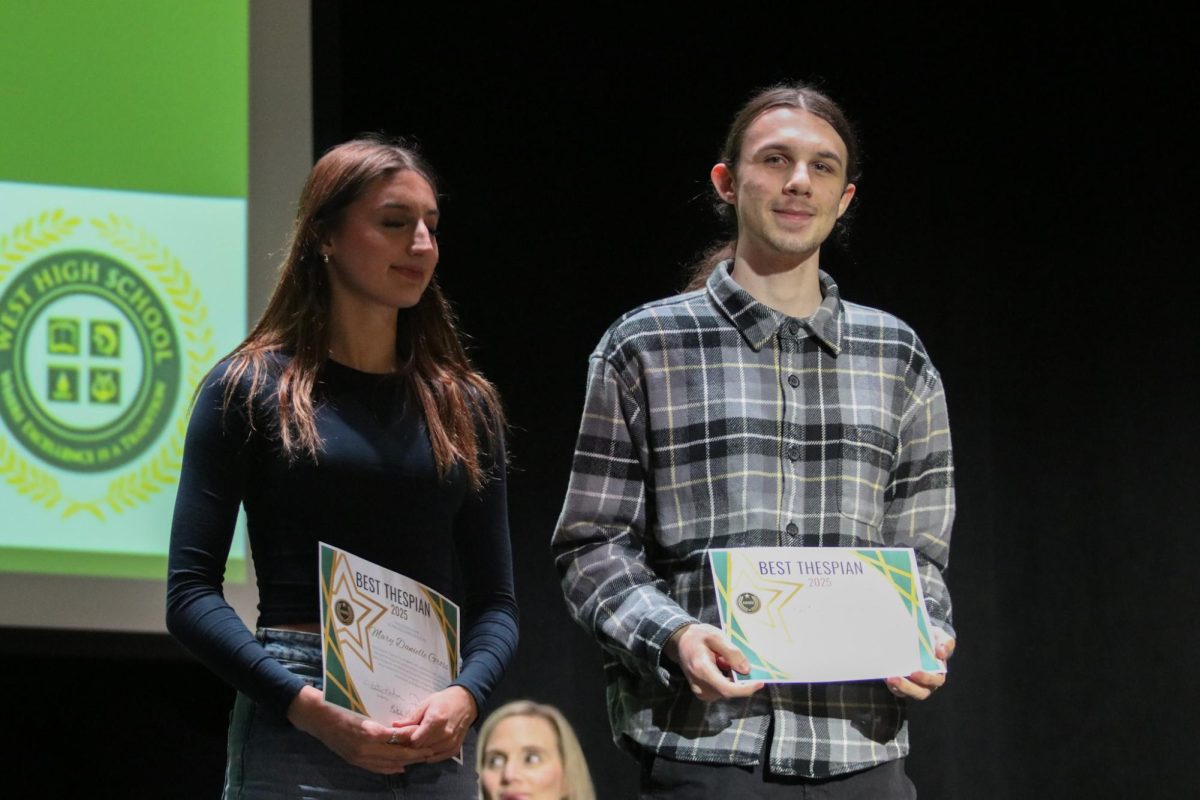He holds his microphone close, looking out into the dark sea of people eagerly waiting for his performance. Most teenagers would be nervous in this scenario, but Jude Salten ’28 remains calm as he prepares for an exciting night. The stage curtains open as Salten takes a deep breath and releases a melody into the crowded audience.
Salten’s future seemed unlikely for the first few years of his life, as he was born with a medical condition that limited his motor skills.
“I have something called cerebral palsy, which affects my legs and the way I use my fine motor skills. I’ve worked to overcome it [through] years of practice, and it’s been a grind, but I’ve tried my hardest,” Salten said.
Cerebral palsy affects muscle control including the diaphragm, which controls breathing, swallowing and vocalization — all fine motor skills. While learning to work through these challenges, Salten found comfort and inspiration in music.
“My mom used to play cello pieces [for me] when I had trouble calming down. Although growing up with cerebral palsy was really hard, my disability led me to believe I could be a classical musician and impact many people’s lives,” Salten said.
Salten has been in the spotlight since he was five years old when he first began his music career. He took vocal performance lessons and then joined Crescendo Children’s Choir, a community choir based in St. Louis, Missouri.
“Crescendo Children’s Choir was an eye-opener for music because the community helped me and supported me. It was a great experience,” Salten said.
The choir motivated Salten to begin competing at the local and state levels by helping him train and find opportunities to showcase his singing. One of those opportunities arose when Salten met Élise Deschamps, an Assistant Professor of Instruction at the University of Iowa School of Music.
“When I first met [Deschamps], she told me, ‘Hey, you could sing in [competitions] and be really successful,’” Salten said.
Salten followed her advice and went on to compete in a regional competition hosted by the National Association of Teachers of Singing, where singers compete in multiple preliminary rounds with the best making it to finals.
“It was great for me to experience that thrill of competing and being successful,” Salten said. “You sing, they judge you, and you move on. It feels glorious to make it through the full thing.”
To Salten, music is more than just a hobby or a competition; music is how he expresses himself.
“Music is very important for life, and it gives you something to look forward to. It’s a light in the tunnel,” Salten said.
Salten also believes music can change who you are as a person. For him, it not only helps him learn more about himself but also helps him grow.
“[Music helps me] grow as a person. Listening to each genre of music, especially classical, gets you into a different part of your brain. You can focus, grow [and] learn from classical music,” Salten said.
Salten’s commitment to getting better and improving each day helps him connect with his audience. Music director Tim Hankewitch has worked with Salten for three years at Orchestra Iowa, a program that supports a variety of classical music groups, and believes Salten’s disability isn’t a barrier to becoming a successful musician.
“Although his physical limitations are unusual, I don’t think it is an obstacle for a career in music. [A successful career] doesn’t have to do with talent, and has nothing to do with capability, rather it is the training [that matters most],” Hankewitch said.
Salten mirrors this mindset when it comes to becoming a successful musician.
“If you want to be a musician, your disability shouldn’t stop you. It should [help] you grow and learn what your strengths and weaknesses are,” Salten said.
One of Slaten’s major strengths in a choir is how he works in groups while still expressing himself and his voice.
“[While performing,] their eyes light up when they are part of a larger ensemble and participating in something bigger than themselves, which is one of the most magical points I can imagine,” Hankewitch said.
Luigi Enriquez, one of West’s choir teachers, has witnessed Salten’s positivity and how he brings a new perspective to the classroom.
“When we go through our days, we just need that little extra pep. Jude always offers that and brings it wherever he goes. I feel like he always offers a positivity that I also sometimes need in my own teaching,” Enriquez said.
In class, Salten’s eagerness to learn inspires other students to always try their best and strive for improvement. His work ethic reflects his goal of becoming a professional singer, as he is willing to do whatever it takes to not only overcome his disability but also embrace it.
“Whatever [Salten] sets his mind to, he will accomplish. If he wants singing to become a career, he has a great chance of becoming a professional singer if he continues to work hard,” Enriquez said.
In the meantime, Salten plans on working to consistently improve as a musician rather than focusing on competitions.
“If you don’t win every competition, that’s fine, but if you’re trying your best and working hard, and getting better every single day as a musician, that’s golden,” Salten said.
The unique opportunities provided to Salten have enabled him to make an impact on people’s lives as a classical musician. Salten’s determination and efforts have helped him grow as a musician.
“[There are] a lot of opportunities I’ve been introduced to, like being able to sing in so many operas. I’ve sung in five operas, and it’s one of the best opportunities you could ever have as a musician,” Salten said.
Salten feels music is how he can express himself and hopes to convey that in his performances.
“This is what I love to do. I’m not here for myself — I’m here to help the audience understand who I am and what I am as a person,” Salten said.






